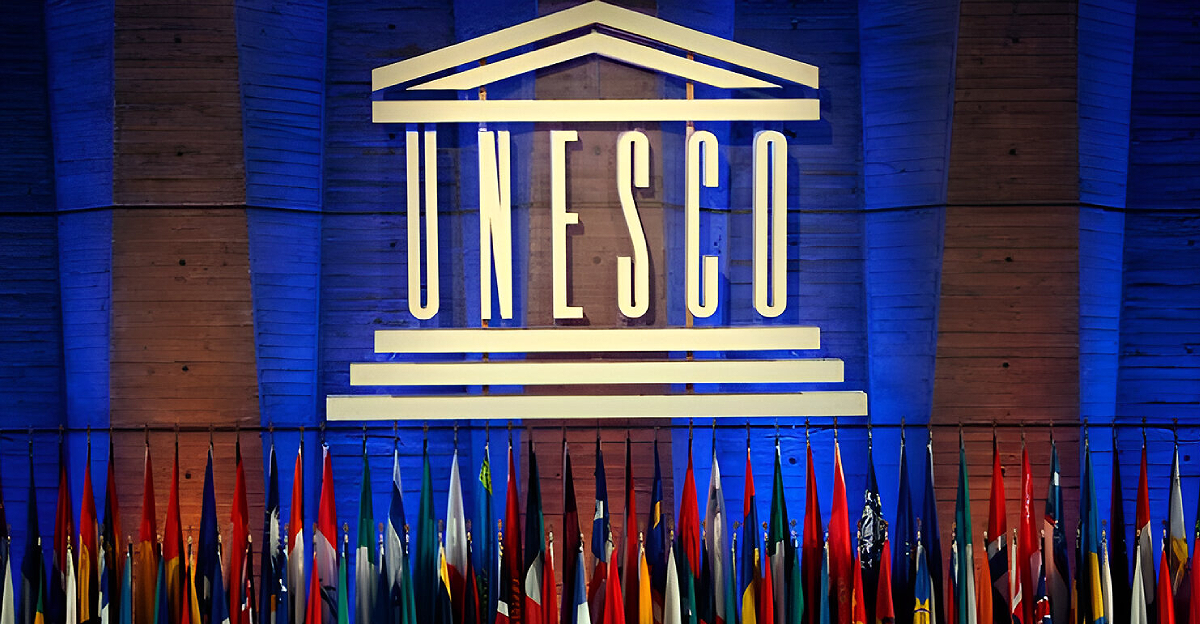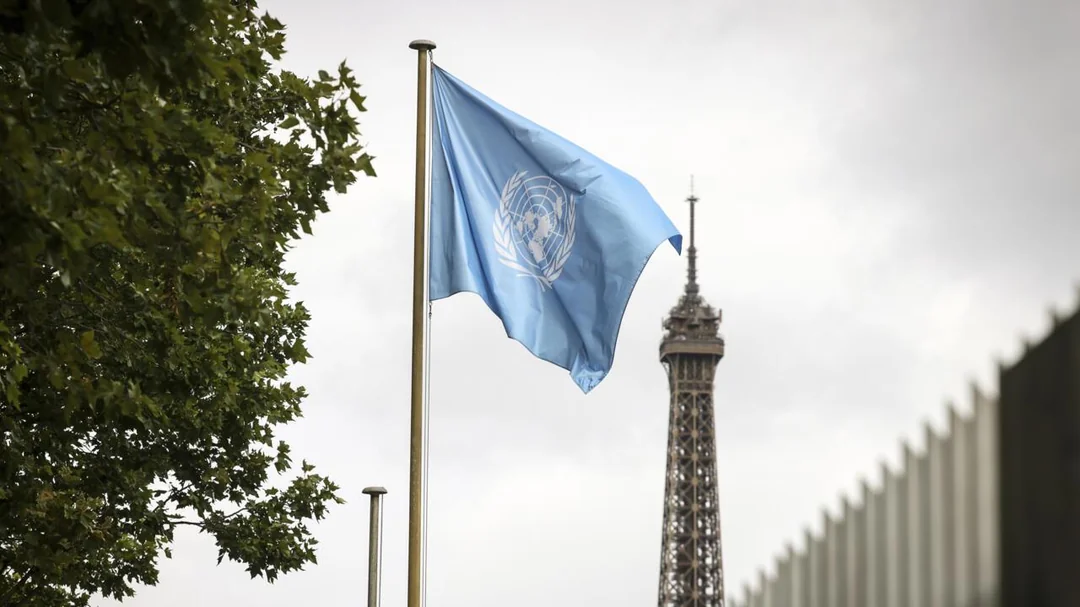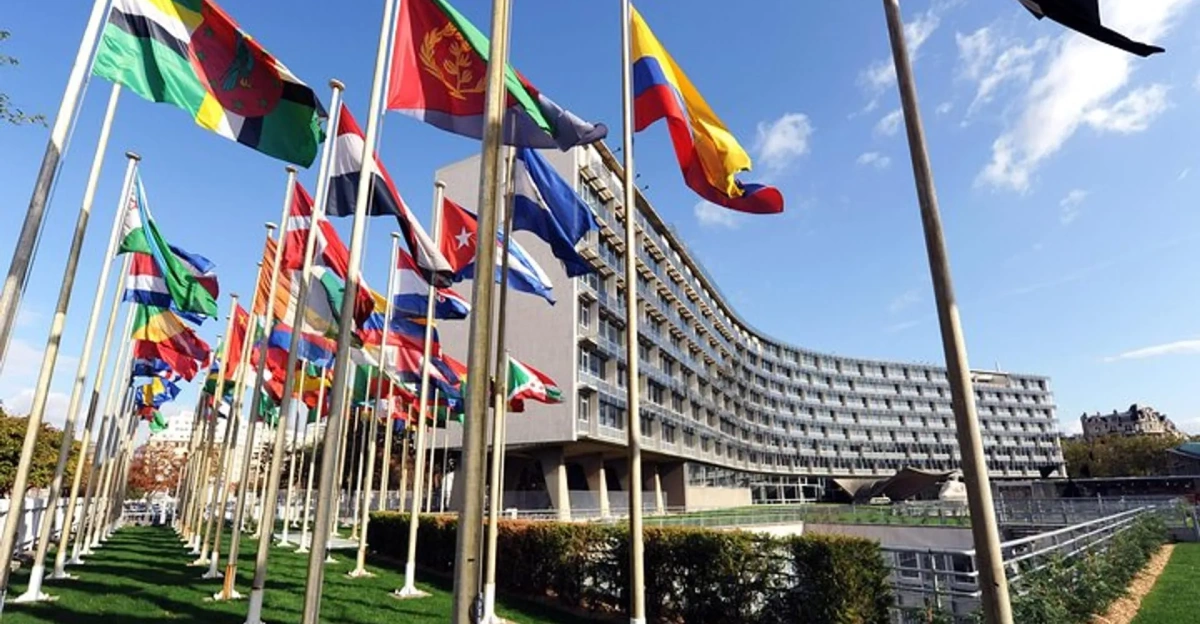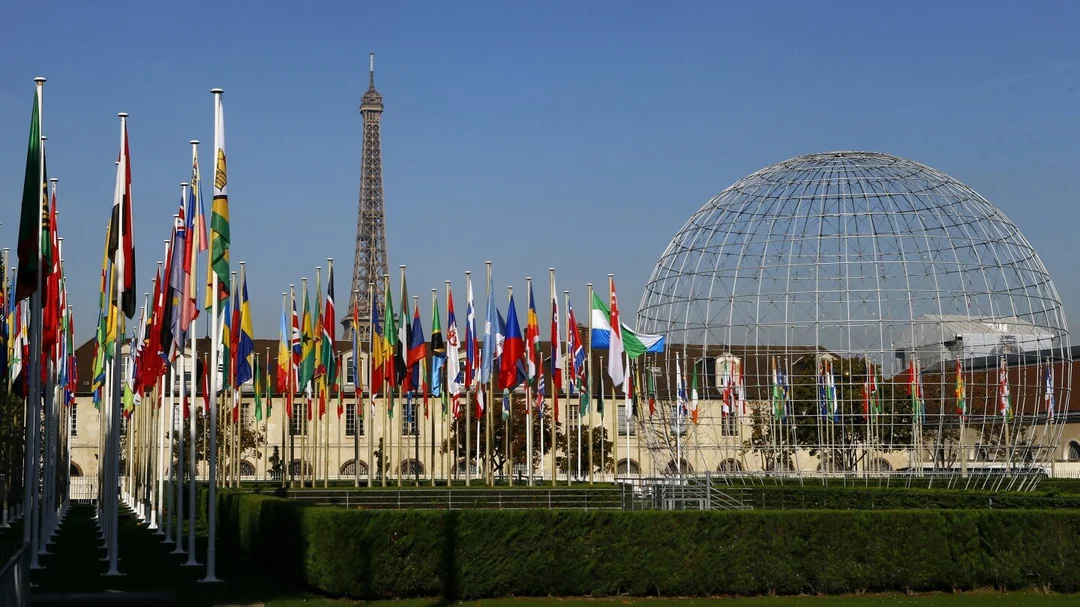
In a decision that sent ripples through global cultural circles, the United States announced its intention to withdraw from UNESCO, a move unprecedented in recent decades. Once a leading member and significant agency funder, the US’s departure raises alarms about its traditional role in global cultural leadership. “This is a real setback,” a Paris diplomat noted, encapsulating the sentiment among insiders. As news broke, immediate concerns emerged regarding a potential financial shortfall and the future of vital international cultural programs. With diplomatic and funding tensions on the rise, questions lingered: would the burden of funding fall solely on Europe, or would it be distributed more widely?
The Financial Fallout

UNESCO’s financial landscape has been abruptly thrown into disarray. Traditionally, the US contributed approximately $75 million annually, accounting for around 8% of the organization’s budget. This financial foundation has been pivotal in supporting global education and heritage initiatives. The stakes were raised further as UNESCO prepared to scale up these projects, effectively leaving member nations in a crisis. “We cannot shoulder this alone,” one European official remarked, underscoring the urgent need for a collective response to fill the funding gap left by the US exit. Their sentiments resonated through the hallways of UNESCO headquarters in Paris, where urgency was palpable.
A Familiar Pattern

The relationship between the US and UNESCO has a history of tumult. The US first withdrew in 1984, citing concerns over mismanagement, before rejoining in 2003. Tensions resurfaced in 2011 when a law prohibiting funding after Palestine was admitted led to years of unpaid dues. The Trump administration’s earlier exit in 2018 was momentary; however, this recent decision reflects deeper policy rifts and escalating competition for influence within multilateral institutions. “We often feel like a seesaw,” a knowledgeable observer remarked, pointing out the unpredictability of the agency’s relationship with its largest member state.
Pressures Building

The US withdrawal timing could not have come at a worse moment for UNESCO, which is already grappling with rising global challenges. Climate emergencies, war-related heritage losses, and threats to free expression in education necessitate increased funding, not decreased. “Our capacity is not unlimited,” admitted a senior official from France, highlighting the dilemma facing European nations. Already stretched thin from previous budget adjustments, they find themselves at a crossroads, needing to rethink financial commitments amid urgent global demands. Internal debates within UNESCO reflect a pressing question: how to navigate the void left by the absence of US leadership.
The $75 Million Gap

On July 22, 2025, the US State Department withdrew officially, citing plans to exit by December 2026. This move left a staggering $75 million gap in UNESCO’s tenuous budget. Director-General Audrey Azoulay remarked, “It’s regrettable but expected,” voicing the agency’s reliance on US contributions for essential operations. As concerns grow, so do the stakes for UNESCO’s ongoing programs, which include vital initiatives across education, culture, and human rights worldwide. This funding hole presents both a challenge and an opportunity for international cooperation, reinforcing the urgent need for collective action among remaining member states.
Europe Steps Up

In the wake of this unexpected turn of events, European nations, particularly France, quickly reaffirmed their commitment to UNESCO. President Emmanuel Macron criticized the US decision while urging member nations to demonstrate leadership during this critical juncture. Germany echoed this sentiment, promising to increase its contributions to help offset the American shortfall. “We are prepared to step up,” a German official stated, signaling a readiness among EU countries to assume a greater role in sustaining UNESCO’s initiatives. However, this commitment would require complicated negotiations and likely domestic budget reallocations to manage the increased financial burden.
Voices from Within

For those working at UNESCO, the news of the US withdrawal hit hard. “We saw it coming, but still, it’s a blow,” shared a mid-level official in Paris, capturing the emotional toll on staff. Many expressed concerns over potential layoffs and disruptions to critical programs promoting education, culture, and press freedom in regions as diverse as Afghanistan and Peru. “Without the specified funding, these projects will wither away,” lamented a veteran UNESCO manager, highlighting the indispensable role of European support in maintaining the agency’s flagship initiatives. Such sentiments echoed the collective anxiety felt within the agency.
A New Landscape

With the US stepping back, emerging powers like China began repositioning themselves within the UNESCO framework. Over the past few years, China has ramped up its funding and ambitions at UNESCO, alongside similar moves from Russia and Gulf states looking to enhance their influence. Despite these changes, European governments still hold the most promise for filling the leadership void left by the US. “We must collaborate to ensure cultural integrity and educational access across the globe,” a European diplomat stressed, indicating a significant shift in the international political landscape as competition for influence intensifies.
The Bigger Picture

The implications of the US funding loss reach far beyond mere calculations; they threaten operations in over 100 countries. UNESCO’s initiatives regarding world heritage, girls’ education, and press freedom rely on stable, long-term financing, and this sudden uncertainty could hinder the agency’s capacity to respond to emergencies. In 2024, it was reported that over 30% of UNESCO’s funding was earmarked for urgent responses, particularly in regions that also receive EU development aid. “We cannot afford to let these programs falter,” one concerned European official stated, highlighting the need for foresight in addressing these new financial realities.
Shifting Responsibilities

In response to the looming funding crisis, UNESCO insiders revealed that informal discussions have commenced to coordinate emergency payments from leading European nations and private donors. “Every bit helps,” a mid-level European contributor remarked, underscoring the necessity for collaboration among allies to bridge the financial void. However, even in this proactive approach, the looming question remains about channeling resources effectively amid rising tensions and budgetary limits across member states. The path forward requires innovative solutions and collective strategies to address the multifaceted challenges facing UNESCO and its mission.
The Quest for Solutions

As discussions progress regarding emergency funding, the focus among European members has sharpened on the need for collective action. However, addressing the financial gap requires quick fixes and long-term strategies to stabilize funding flowing into UNESCO. “We need to think creatively about how to keep programs running,” a financial analyst stated, emphasizing the urgency of solidifying a shared commitment. Innovative funding models and new partnerships with private entities could provide essential lifelines, allowing the agency to navigate this fiscal storm.
Keeping Hope Alive

Despite the overwhelming challenges, there remains a flicker of optimism among those involved in UNESCO’s operations. The global cultural community continues to express unwavering support for educational initiatives and cultural heritage programs that transcend borders. “These are not just numbers; they represent lives changed and histories saved,” said a passionate supporter of UNESCO’s mission, reinforcing the human impact of its work. As European nations forge new pathways to support UNESCO’s objectives, this shared dedication is a testament to the importance of collaboration in safeguarding cultural heritage and global education.
A Time for Reflection

Reflecting on this rapid sequence of events, it is clear that the US’s withdrawal from UNESCO marks a significant pivot moment not just for the agency but for international cooperation itself. The widening gaps in funding have raised fundamental questions about the future of collaborative cultural and educational exchange. Each member now faces a crucial choice: reshaping their commitments in light of these changes. “What we do now will define the next chapter of international cultural relations,” asserted a knowledgeable commentator, urging member states to think beyond the immediate financial implications.
Towards a New Horizon

With fresh perspectives emerging and a commitment to bridging funding gaps, there lies immense potential for redesigned collaborations. As Europe steps forward, there remains an opportunity to adopt innovative practices that encourage participation from a broader array of funding sources. The global community must adapt to new realities while ensuring that critical education, culture, and heritage legacies remain safeguarded. “Together, we can chart a new course,” stated a hopeful participant in the discussions, highlighting the potency of unified action amid uncertainty.
The Future Awaits

As we look to the future, the dynamics within UNESCO will undoubtedly evolve, shaped not only by the challenges posed by the US withdrawal but also by the proactive steps taken by European nations and other contributors. The agency stands at a crossroads, where resilience and adaptability will determine its ability to fulfill its mission. “This is a moment for reinvention,” said a cultural leader involved with UNESCO, signaling the hope that remains fixed on shared cultural endeavors across nations. In these uncertain times, the global commitment to education and heritage preservation promises to unite communities beyond borders.






